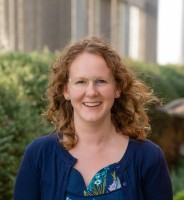Climate Change
Sustainable Living & City
Carbon Cycle
Circular Economy & Green Chemistry
Greenhouse Gases Emissions
Post-Doctoral Fellowships
United Kingdom
2011.09.30
New Technologies to Reduce CO2 emissions: Using CO2 to make Plastics
My research focuses on: The development of new catalysts for the formation of polycarbonates from carbon dioxide and epoxides. This copolymerisation process is potentially and attractive form of Carbon Capture and Usage (CCU), and could be used to create polymers with increased renewable content. In particular, my research is focused on development of catalysts active under mild conditions (e.g. 1 bar CO2 pressure) using cheap, abundant metals (e.g. magnesium). We are investigating the feasibility of these catalysts with different potential CO2 sources (e.g. fermentation, power etc).
LIFE IN PLASTIC IS FANTASTIC
To add or modify information on this page, please contact us at the following address: community.research@axa.com

Michael
KEMBER
Institution
Imperial College London
Country
United Kingdom
Nationality
British
Related articles
Sustainable Living & City
Climate Change
Climate Adaptation & Resilience
Urban Planning
Resilient Infrastructure & Safety
Environmental Justice
Post-Doctoral Fellowship
Australia
2023.06.20
Indicators for Climate Resilient City Planning
Expected start date:June-2023 Cities contribute enormously to global greenhouse emissions and are key drivers of climate change. By the same... Read more

Melanie
LOWE
Institut royal de technologie de Melbourne
Climate Change
Pollution
Aerosols & Particulate Matters
Public Health & Health Policy
Toxic Pollutants & Hazardous Substances
Post-Doctoral Fellowship
Greece
2023.06.01
Insight in Dust Fine-Mode to Mitigate Health Hazards in a Changing Climate
Expected start date:June-2023 In late-April/early-May 2022, a surge of remarkable dust storms ravaged Iraq, resulted- according to the World Health... Read more

Emmanouil
PROESTAKIS
